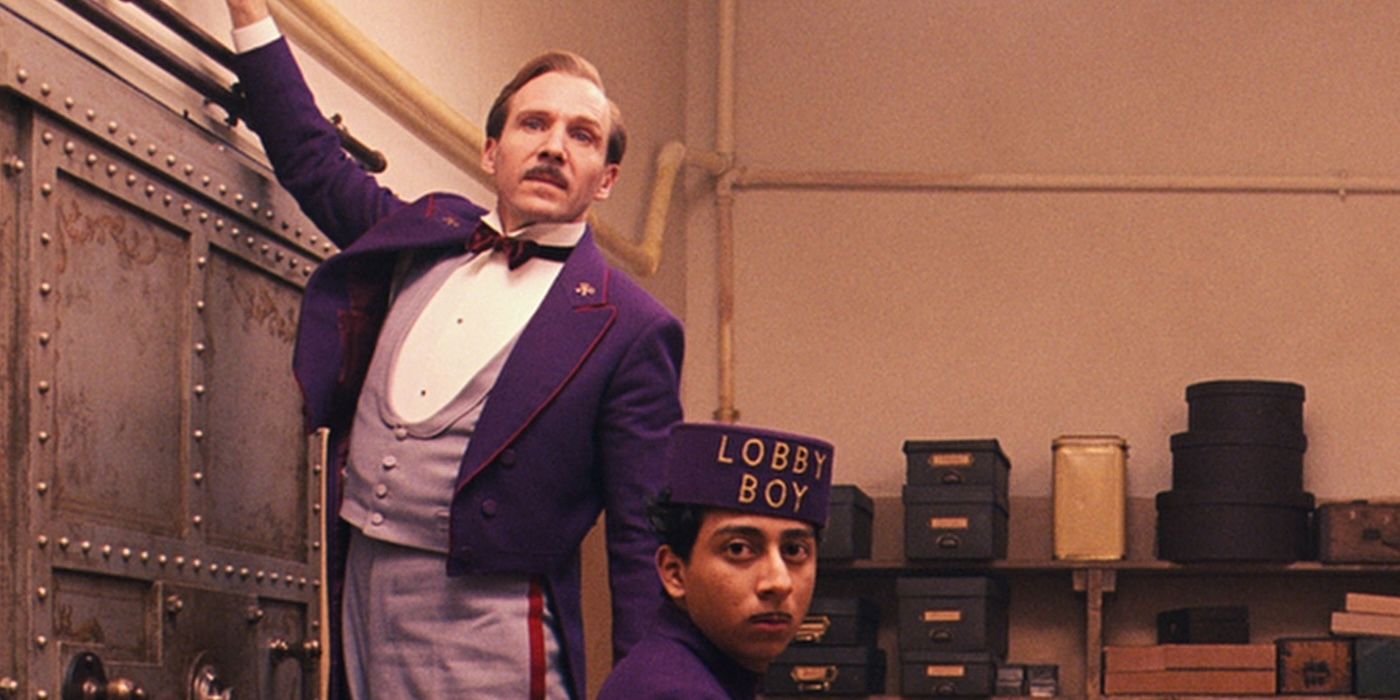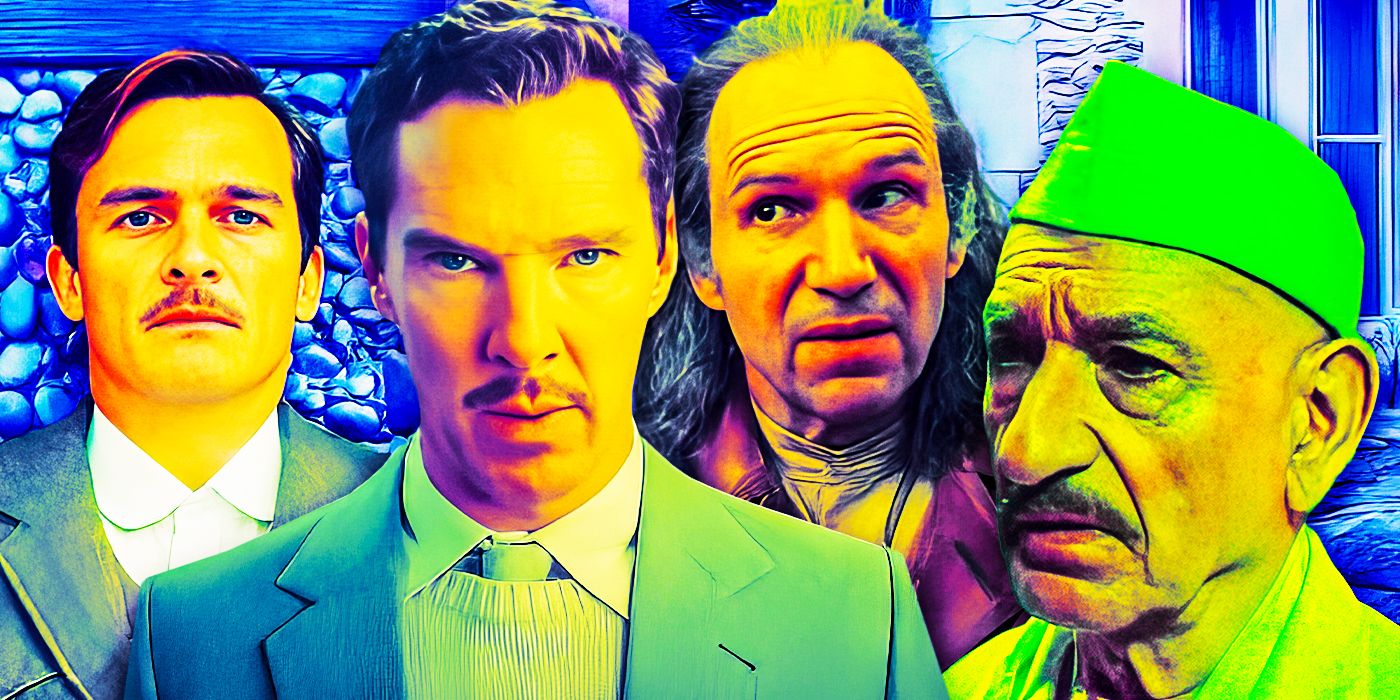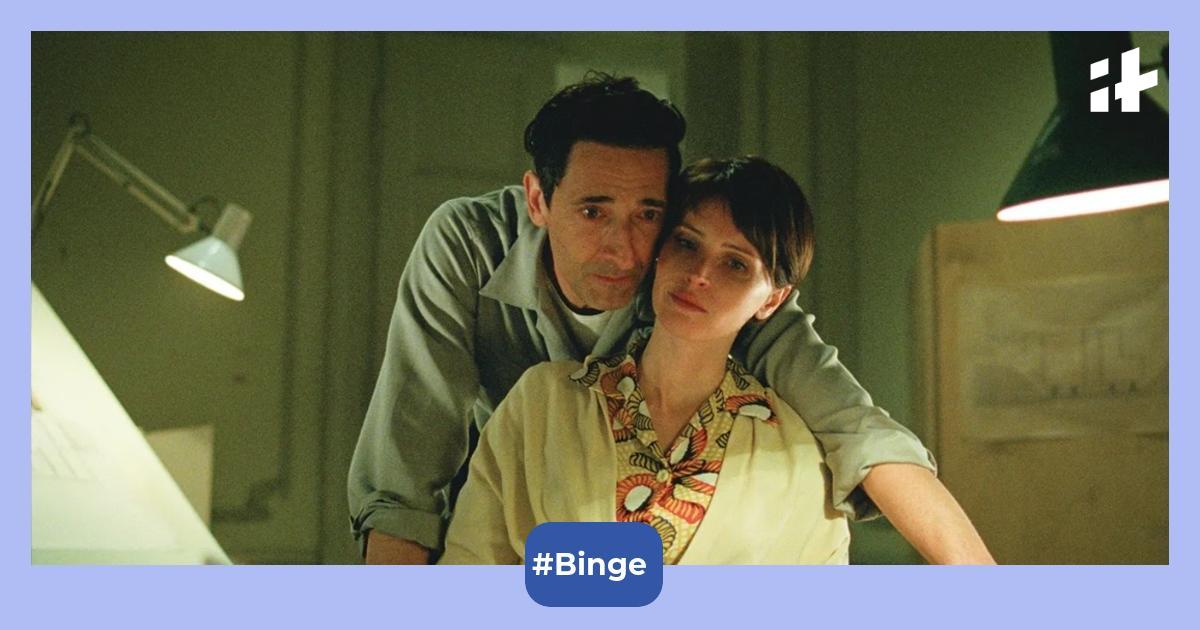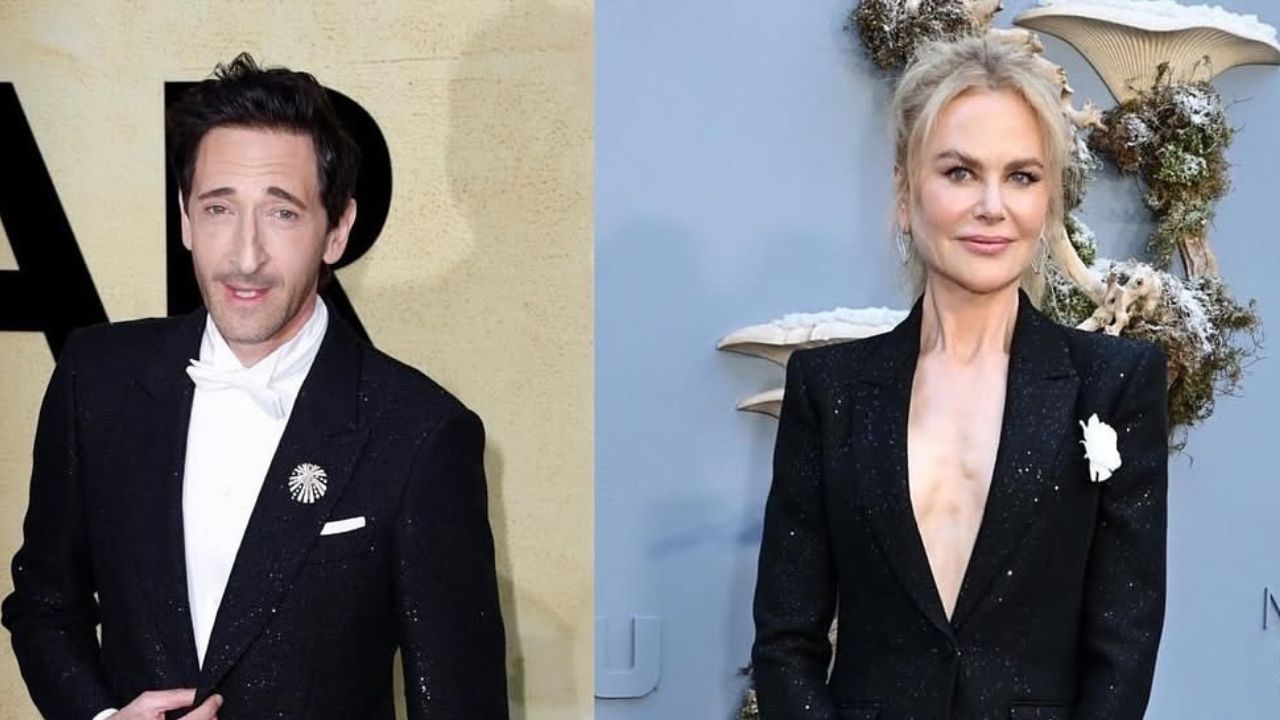is a richly layered story, but even the biggest fans might not know that it completely spoils its ending within the first few minutes. Like many Wes Anderson movies, The Grand Budapest Hotel is visually stunning, with each frame looking like a postcard from an idyllic central European retreat. However, this gorgeous facade conceals a surprisingly dark crime story, with two unlikely friends being pursued across the country by an assassin, while their nation falls under the grip of a rising fascist movement.
The Grand Budapest Hotel has an outstanding ensemble cast, including many Wes Anderson regulars, like Adrien Brody, Tilda Swinton and Willem Dafoe. However, the story mostly focuses on the dynamic between Ralph Fiennes' eccentric hotel concierge Monsieur Gustave and Tony Revolori's lobby boy Zero Moustafa. The frame narrative reveals that Zero survives until old age, but keen-eyed people might have been able to spot the other major spoilers that are hidden in the first few minutes of The Grand Budapest Hotel.
As Jude Law's author character passes the time at the Grand Budapest Hotel by speaking with Jason Schwartzman's Monsieur Jean - the new concierge - he asks about the mysterious older gentleman in the lobby. Jean informs him that this is Zero Moustafa, and a few newspapers pop up on screen to provide some quick backstory. Since the newspapers are only shown for a couple of seconds each, , which reveal that Zero is a wealthy and well-respected man in his country.
Wes Anderson is known for his many iconic hallmarks, one of which is the way that he shows newspapers, letters, magazines and other printed media on the screen.
Wes Anderson is known for his many iconic hallmarks, one of which is the way that he shows newspapers, letters, magazines and other printed media on the screen. He often uses these inserts as an opportunity to aid his worldbuilding, so his fans know that there are usually some interesting nuggets of information waiting to be unearthed. Pausing at the right moment in The Grand Budapest Hotel reveals the entire story of Zero's life before the movie really gets going.
Newspapers appear throughout The Grand Budapest Hotel. They're often a good way to link Gustave and Zero's story to the war that's unfolding in Zubrowka. Pausing and analyzing them always reveals something interesting, such as a more thorough political backstory for the region, or the ways that papers with different agendas report on the same story. , and The Grand Budapest Hotel is packed with tiny moments and images waiting to be discovered.

The Grand Budapest Hotel, like many of Wes Anderson's movies, is densely layered and beautiful enough to still be rewarding after multiple watches. The story has enough highlights that it barely matters if the audience knows what's coming at the end of Zero's journey, because there's always something new to draw the eye. The Grand Budapest Hotel can spoil its ending because . Zero may be alone in his old age, but he doesn't seem bitter. He still carries his love with him, and he's eager to share a story with a new friend.

Related
All 4 Of Wes Anderson's Short Roald Dahl Movies, Ranked Worst To Best
Four new short films from Wes Anderson have been released on Netflix, all based on short stories by Roald Dahl, but all have their pros and cons.
It's also not much of a surprise that Zero's story ends in heartbreak. The frame narrative reveals that Zero is alive but alone, so there's always the suggestion that something terrible happened. It's a devastating emotional blow when Zero loses Gustave, Agatha and his child, but it would take a naive optimist to believe that everyone would make it out alive after facing a ruthless assassin and a fascist regime. It's almost impossible that someone would pick up on the newspaper detail during their first watch of , but even if they did, they could still enjoy Anderson's masterpiece.










